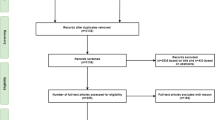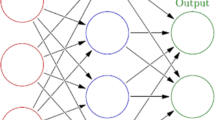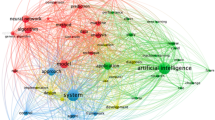Abstract
Although artificial intelligence (AI) is currently one of the most interesting areas in scientific research, the potential threats posed by emerging AI systems remain a source of persistent controversy. To address the issue of AI threat,this study proposes a “standard intelligence model” that unifies AI and human characteristics in terms of four aspects of knowledge, i.e., input, output, mastery, and creation. Using this model, we observe three challenges, namely, expanding of the von Neumann architecture; testing and ranking the intelligence quotient (IQ) of naturally and artificially intelligent systems, including humans, Google, Microsoft’s Bing, Baidu, and Siri; and finally, the dividing of artificially intelligent systems into seven grades from robots to Google Brain. Based on this, we conclude that Google’s AlphaGo belongs to the third grade.




Similar content being viewed by others
References
Liu F, Shi Y (2014) The search engine IQ test based on the internet IQ evaluation algorithm, proceedings of the second international conference on information technology and quantitative management. Procedia Comput Sci 31:1066–1073
Liu F, Shi Y, Wang B (2015) World search engine IQ test based on the internet IQ evaluation algorithms. Int J Inf Technol Decis Mak 3(1):003–012
von Neumann J (1993) First draft of a report on the EDVAC. IEEE Comput Soc 4(15):27–75
Shengtao L (2007) Geometric analogical reasoning test for feasibility study of cognitive diagnosis. Degree thesis, Jiangxi Normal University, Nanchang, pp 67–69
Wang Y (2009) Collaborative learning system construction and application of. Degree thesis, East China Normal University, Shanghai, pp 23–27
Liu F (2015) Search engine IQ test based on the internet IQ evaluation algorithms. Degree thesis, Beijing Jiaotong University, Beijing, pp 32–33
Durkheim E (2006) Les formes élementaires de la vie religieuse. Shanghai People’s Publishing House, Shanghai
Zweigle O, van de Molengraft R (2011) RoboEarth: connecting robots worldwide. IEEE Robot Autom Mag 18(2):69–82
Wang FY, Zhang JJ, Zheng X, Wang X (2016) Where does AlphaGo go: from Church–Turing thesis to AlphaGo thesis and beyond. IEEE/CAA J Autom Sin 3(2):113–120
Acknowledgements
This work has been partially supported by grants from National Natural Science Foundation of China (No. 91546201, No. 71331005).
Author information
Authors and Affiliations
Corresponding authors
Rights and permissions
About this article
Cite this article
Liu, F., Shi, Y. & Liu, Y. Intelligence Quotient and Intelligence Grade of Artificial Intelligence. Ann. Data. Sci. 4, 179–191 (2017). https://doi.org/10.1007/s40745-017-0109-0
Received:
Accepted:
Published:
Issue Date:
DOI: https://doi.org/10.1007/s40745-017-0109-0




